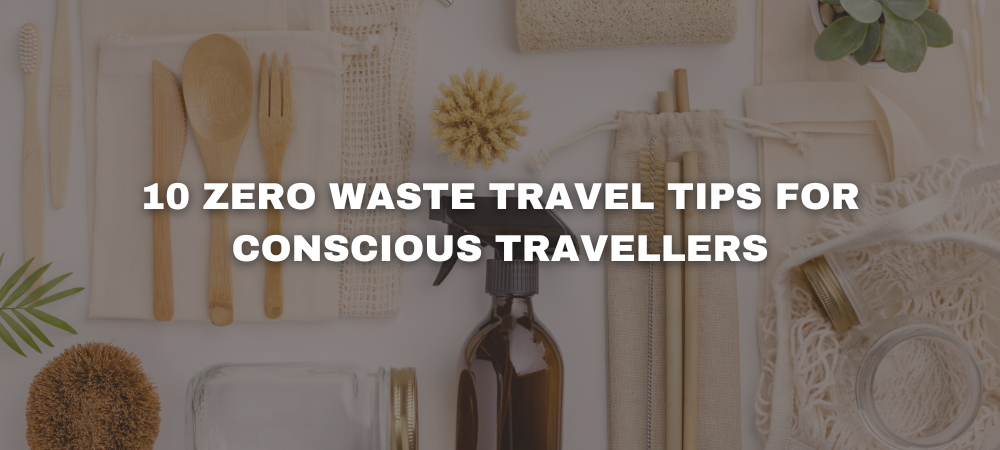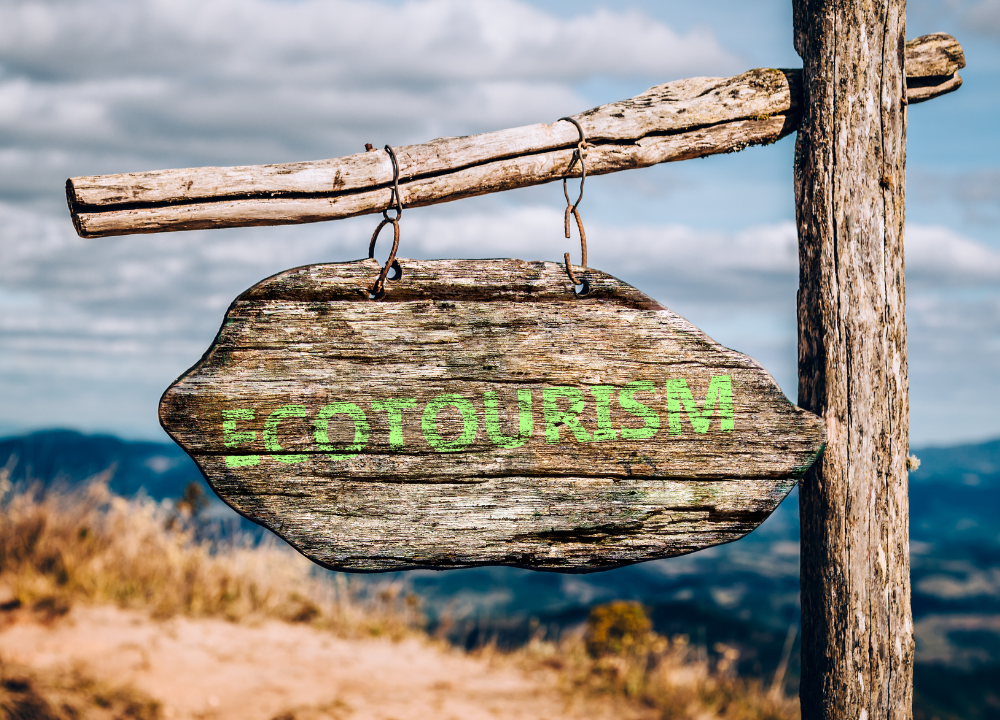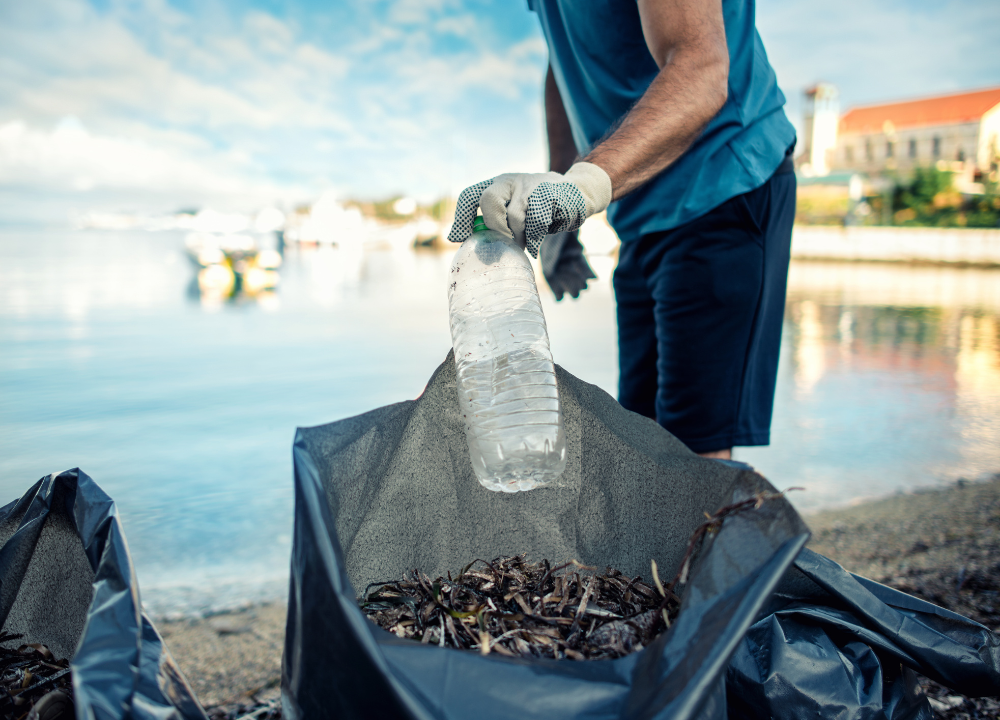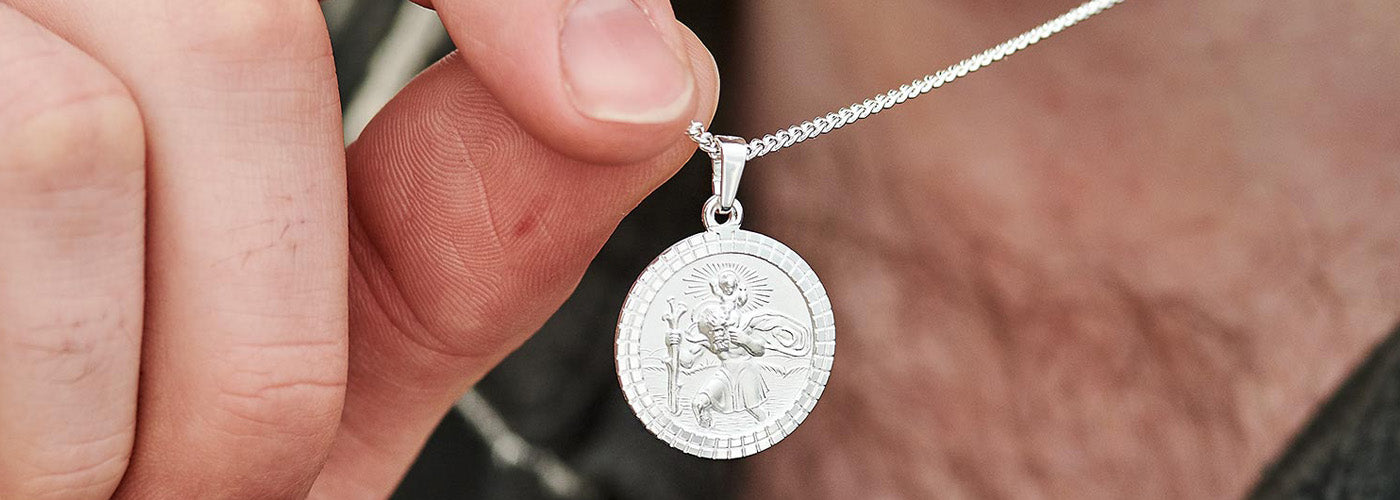
Are you a conscious traveller who is aware of the environmental impact of travelling? It’s no secret that travelling internationally and especially mass tourism have a detrimental effect on the environment.
There is just so much extra waste produced by careless tourists and just the sheer volume of people visiting an area. From planes, trains and buses, to accommodation to activities to eating out and packing, when you think about it all of these things create a lot of additional waste that you wouldn’t create at home.
However, this doesn’t mean we can’t travel and take care of the environment at the same time! By choosing to travel consciously and reduce waste through zero waste travel practices, you can do your bit to look after the places you are visiting and offset your environmental footprint by travelling.
Going totally zero waste may seem impossible and in reality, it is. However, there are so many simple, easy and cheap things you can do to reduce your plastic consumption and waste on the road. The only thing you may need to sacrifice is a little bit of convenience! But it is so worth it.
It is important to keep in mind that different places around the world, with varying environmental regulations and awareness, means that some destinations are easier to be zero-waste than others. Always do your research on a particular destination before you go so you can be fully prepared.
Take care of the beautiful places you love to visit and leave them in even better condition by going zero waste on your next trip. Before we share all of our tips for zero waste travel, let's dive into what zero waste travel really is.
What is zero waste travel?
As people become more aware of being eco-friendly and supporting ecotourism, zero waste has become a buzz phrase. Achieving 100% zero waste is very challenging in our current modern society, especially when travelling, however, it is possible to significantly reduce your waste on the road.
Zero waste travel is the endeavour to produce as little waste as possible while travelling. This includes all types of waste that will end up in the landfill or the ocean and aren’t limited to just plastic! Zero waste travel encourages people to reduce, reuse, recycle and refuse when travelling and is the hallmark of a responsible tourist.

Why does travelling produce more waste?
When we travel, we are outside of our normal routine. We may not have access to supermarkets, kitchens and just everyday conveniences that we take for granted at home. This means we tend to use way more single-use packaging when travelling for the sake of convenience. For example, water bottles, takeaway containers, coffee cups, travel-size toiletries and so on.
You may not feel like it is much, but when you multiply this extra waste by the thousands of travellers in the world, it is A LOT. If we all did our bit to reduce our waste when travelling, we would make a massive difference to what ends up in the landfill.
The rubbish that ends up in the landfill stays there for hundreds of years before biodegrading. It ends up contaminating the surrounding environment and waterways or it could even end up in the ocean, polluting the sea and creating dangers for marine animals. Plastic is particularly nasty as it breaks down into microplastics eventually.
If this isn’t something you want to contribute to, then implement the following tips to significantly reduce your waste when you’re travelling. These tips apply to regular everyday life at home too!
Every bit helps.
Tips for zero waste travel
1. Go Paperless
Thanks to the internet and smartphones, most airlines, buses, car rentals and trains allow you to download e-tickets. There is no need to print off boarding passes and tickets anymore. Most places that require a ticket, including attractions, are fine with seeing it on your phone. Going fully digital is a simple way to save paper. Take it to another level by walking instead of catching subways and trains around a city to further reduce your impact on the environment.
Another tip for going paperless is to say no if anyone asks you if you want a receipt.When it comes to important documents you need for travel such as a copy of your passport or visas, take a photo or scan them onto your phone. Store them in the cloud so you can always access them even if you have no phone or computer in an emergency.
2. Make your entertainment paper-free
When it comes to travelling, we tend to spend hours on a plane, or in transit. Those hours need to be filled with some kind of entertainment unless you are a zen master! Instead of reaching for a paper book or magazine, plan some zero waste alternatives.
Invest in a kindle for all of your reading or download books and magazines to your phone (there are plenty of apps for these!). Download any Netflix movies or TV shows, YouTube videos or podcasts to your phone or computer before you go so you can watch them even if you have no wifi.
If you love books and can’t give up paper books, opt for second-hand books. They’re dirt cheap and much better for the environment.

3. Make your toiletry bag eco-friendly
Toiletries are a big culprit of waste, whether you are travelling or at home. Luckily there are so many alternatives these days for eco-friendly toiletries that don’t come with any plastic waste!
Firstly, travel with as many bars as possible! This includes shampoo, condition, soap and even deodorant. These can be packaged with paper or nothing at all. They take up little space and last for ages. Plus you can easily take them on carry-on.
Other eco-friendly toiletries worth investing in are metal razors, menstrual cups and reusable period underwear, toothpaste tablets, bamboo toothbrushes and washable make-up wipes.
If you must take some liquids with you, fill up reusable travel-size containers with products you already have at home. Avoid buying profiled travel size shampoo, conditioner and soap.

4. Bring your own snacks on long travel days
Planes are notorious for single-use packaging. Get around this by refusing aeroplane food and taking your own in reusable packaging. Bring fruit (which has its own packaging anyway!), nuts, seeds, chocolate, homemade sandwiches and so on. There are so many options that will likely be tastier and healthier than what the airline offers you anyway.
Silicone zip lock bags are amazing to take on your journey. Whether it is for plane snacks or any snacks or food needed throughout your trip. You can also use them for any liquids in your carry-on instead of using a plastic zip lock bag that’ll end up in the bin.

5. Pack reusable food and drink containers & utensils
The easiest way to reduce your waste is to refuse single-use packaging when eating and drinking. It is easy to avoid single-use packaging on the road when you come prepared!
Things to pack include reusable cutlery, metal straws, cloth napkins (to wrap food & clean up), steel water bottle, containers, mugs and plates. Stainless is a fantastic material to travel with as it is light, easy to pack and very durable.
Plastic water bottles are one the worst culprits of single-use plastic waste, particularly in countries where tap water isn’t drinkable so it's vital to pack a reusable water bottle. You can even consider investing in a self-purifying water bottle so you can filter water anywhere even if you have no access to refillable filtered water.

6. Stay in hostels & Airbnbs over hotels
Hostels and Airbnbs are not only more affordable and more authentic but they can really help you minimise your waste. Hotels often provide individually wrapped toiletries, create a lot of printing and paper with brochures etc and they also wash towels and bedding all the time. This is very wasteful. Hotels are generally not as eco-conscious due to the services they are expected to provide.
Also, hardly any hotels provide a kitchen space so you have to eat out every meal. Whereas most hostels and Airbnbs will give you kitchen access so you can prepare your own food more often, reducing waste.
Do your research when deciding where to stay so you can get an idea of how eco-friendly they are. Look out for initiatives that go beyond leaving your towel on the rail to save water.
By planning your trip in a way where you travel slow, stay in an eco-conscious place for a longer time and keep it local, you can reduce waste and also have a more enriching experience.

7. Collect memories instead of souvenirs
It can be so tempting to collect souvenirs as little mementoes of your trip. However, most souvenirs, especially the tacky plastic mass produced kind, are terrible for the environment. Not the best way to remember a destination!
Focus more on collecting beautiful memories through experiences, videos, photos and the people you meet. This is a better way to give back to the local economy as well.

8. Bring a tote bag or two for shopping
Canvas tote bags last for ages and take up very little space in your luggage. Plus you can fit heaps into them! These are perfect for carrying around when you want to do some food shopping or need to carry a day bag around with your belongings for a day trip.
This way you won’t be caught out having to buy a plastic bag to carry your stuff around. This is useful for groceries, takeaways or any other shopping in general.

9. Always focus on the six R’s of zero waste while travelling
Refuse single-use plastics by coming prepared with the tips mentioned above.
Reduce by travelling lightly and only buying and taking what you need.
Reuse by investing in and packing all your zero-waste toiletry and food items. Also focus on buying second-hand where you can for all your travel essentials including clothing, luggage and gear.
Recycle by always making the effort to find recycling options and disposing of any waste you do make appropriately. This may be more challenging in some destinations than others.
Rot by composting food if possible.
Repair by fixing something when it breaks instead of buying something new. If your clothes get holes or your shoe breaks, find a local seamstress or shoe repair shop.

10. Volunteer for local clean-ups
Wherever you are staying, ask around to see if any organisations do clean-ups in the area where you can participate. If you can’t find any, you can just do it on your own. Grab a garbage bag and start picking up rubbish on the beach, footpaths, trails and so on.If you see rubbish on the ground, pick it up and dispose of it correctly. This is a powerful way to do your bit to clean up areas, especially if they are affected by tourists.






